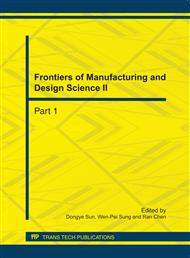p.2829
p.2834
p.2839
p.2845
p.2850
p.2855
p.2860
p.2868
p.2873
Energy Saving and Payback Period for Retrofitting Air Conditioning Systems in Taiwan
Abstract:
In Taiwan, AC systems in buildings with central air conditioning account for over 45% of the total electricity consumed. Inefficient and poorly designed AC systems in existing buildings waste considerable amounts of money and energy. Therefore, retrofitting AC systems has become a widely adopted strategy to save energy while maintaining a comfortable indoor thermal environment. This study analyzes the potential energy savings and payback period of retrofitting AC systems in public buildings. In addition to the required Building Energy Management System (BEMS), several measures are introduced to reduce energy consumption during retrofitting. The main measures include testing, adjusting, and balancing (TAB) of existing AC systems; replacing over-designed chillers with chillers with smaller capacity; installing frequency conversion in original systems, such that they become variable water volume (VWV) and variable air volume (VAV) systems; and utilizing CO2 concentration control and pre-cooling air systems. Based on analytical results, we conclude that AC system retrofitting can reduce total energy usage by 11.75%, while the average payback period for a retrofit project is 4.71 years, demonstrating that AC system retrofitting in Taiwan is economically sound.
Info:
Periodical:
Pages:
2850-2854
Citation:
Online since:
October 2011
Keywords:
Price:
Сopyright:
© 2012 Trans Tech Publications Ltd. All Rights Reserved
Share:
Citation:


